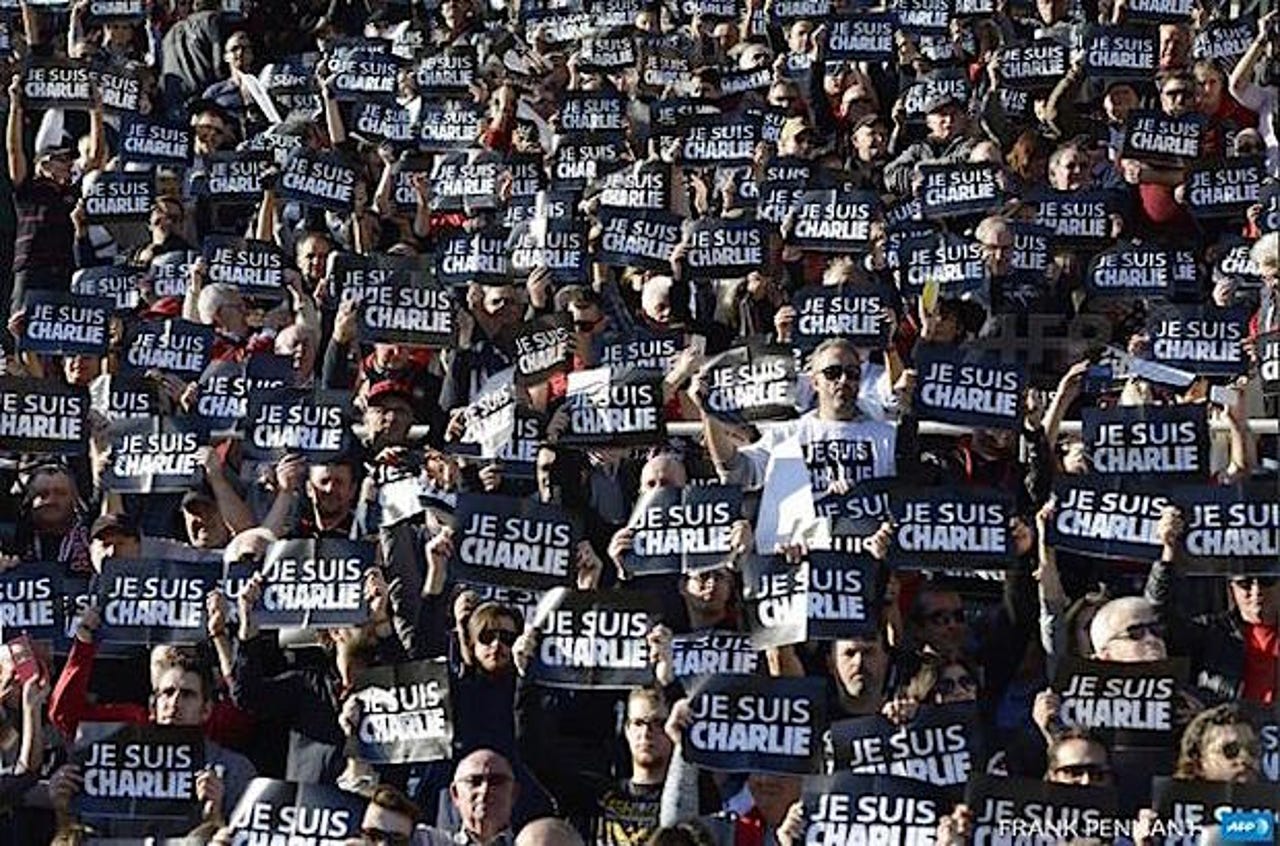Europe's answer to France terror 'attack on free speech' is greater Internet censorship


About half of Europe's member states are pushing for greater online censorship powers in the wake of the terror attacks in France earlier this month.
In a joint statement, interior ministers from 11 European member states -- including Germany, Poland, Spain, and the U.K. -- expressed condemnation of the attacks, while stressing further cooperation between their law enforcement and intelligence agencies.
Members of the European Union, along with a delegation from the U.S. government -- including outgoing Attorney General Eric Holder -- adopted, among other sentiments, a resolution to create a partnership of major Internet providers to report and remove material associated with extremism.
"We are concerned at the increasingly frequent use of the Internet to fuel hatred and violence and signal our determination to ensure that the Internet is not abused to this end, while safeguarding that it remains, in scrupulous observance of fundamental freedoms, a forum for free expression, in full respect of the law," the statement said.
The statement also said the Internet was a focal point in the "fight against radicalization," and there was a need to strengthen resources across the region, including greater border surveillance.
Some civil liberties advocates have already expressed their concern that such sentiments undermine the Schengen freedoms, which allow the free flow of citizens across each of the 28 member state borders -- a founding principle to the European Union.
The statement did not, however, elaborate further.
The comments come as Paris remains vigilant as it recovers from three days of planned and coordinated terror attacks last week.
Paris went into lockdown for three days as it endured its single largest terrorist attack in more than five decades. Armed gunmen stormed the office of satirical magazine Charlie Hebdo on January 7, killing 12 staffers and cartoonists, as well as two police officers.
Later in the week, terrorists linked with the Charlie Hebdo attack stormed a Jewish supermarket in Paris, taking about a dozen people hostage. In the rescue attempt, four were killed.
The attacks have been widely condemned around the world as a direct assault on free speech.
But a day after the attacks began, France's answer was to introduce a decree aiming to protect its Internet users from accessing sites "inciting or condoning acts of terrorism" and "websites disseminating pornographic images or representations of minors."
Featured
In a filing with the European Union, French authorities declared in an emergency procedure its intentions to block "at domain level" access to sites the French government deems to be in breach of its law.
But critics were quick to point out the U.K.'s recent bid to crack down on online "extremist" content, in which British authorities fought to reinstate the right to retain Internet provider and cell carrier data after the highest court in Europe repealed the law across the region.
In July, the U.K. parliament pushed through an emergency bill allowing the government to reinstate data retention laws, weeks after the European Court of Justice repealed such powers.
The European Parliament, whose elected officials will require the bulk of the pan-European effort to take legislative form, will later this year decide on how the region will respond to the ongoing threat of terrorism from groups, including those who claim allegiance to al-Qaeda in the Arab-Peninsula, and the Islamic State collective.